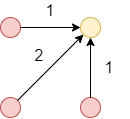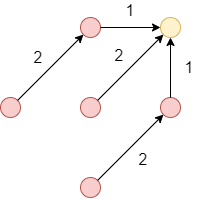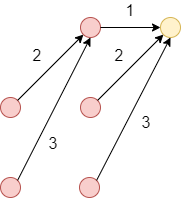dtw
Functions
-
int main(int argc, char *argv[])
dtw [ option ] file1 [ infile ]
-l int
length of vector \((1 \le M+1)\)
-m int
order of vector \((0 \le M)\)
-p int
type of local path constraints \((0 \le P \le 6)\)
-d int
distance metric
0Manhattan1Euclidean2squared Euclidean3symmetric Kullback-Leibler
-P str
int-type Viterbi path
-S str
double-type DTW score
file1 str
double-type reference vector sequence
infile str
double-type query vector sequence
stdout
double-type concatenated vector sequence
- Parameters:
argc – [in] Number of arguments.
argv – [in] Argument vector.
- Returns:
0 on success, 1 on failure.
See also
-
class DynamicTimeWarping
Perform dynamic time warping.
The input is the \(M\)-th order query vectors:
\[ \begin{array}{cccc} \boldsymbol{x}(1), & \boldsymbol{x}(2), & \ldots, & \boldsymbol{x}(T_x), \end{array} \]and the \(M\)-th order reference vectors:\[ \begin{array}{cccc} \boldsymbol{y}(1), & \boldsymbol{y}(2), & \ldots, & \boldsymbol{y}(T_y), \end{array} \]where \(T_x\) and \(T_y\) are the length of the each vectors. The output is the concatenated vector sequence:\[ \begin{array}{cccc} \boldsymbol{z}(1), & \boldsymbol{z}(2), & \ldots, & \boldsymbol{z}(T), \end{array} \]where\[\begin{split} \boldsymbol{z}(t) = \left[ \begin{array}{c} \boldsymbol{x}(\phi_x(t)) \\ \boldsymbol{y}(\phi_y(t)) \end{array} \right], \end{split}\]and \(\phi_x(\cdot)\) and \(\phi_y(\cdot)\) are the function which maps the Viterbi time index into the corresponding time index of query/reference data sequence, respectively.Public Types
Public Functions
-
DynamicTimeWarping(int num_order, LocalPathConstraints local_path_constraint, DistanceCalculation::DistanceMetrics distance_metric)
- Parameters:
num_order – [in] Order of vector, \(M\).
local_path_constraint – [in] Type of local path constraint.
distance_metric – [in] Distance metric.
-
inline int GetNumOrder() const
- Returns:
Order of vector.
-
inline LocalPathConstraints GetLocalPathConstraint() const
- Returns:
Type of local path constraint.
-
inline DistanceCalculation::DistanceMetrics GetDistanceMetric() const
- Returns:
Distance metric.
-
inline bool IsValid() const
- Returns:
True if this object is valid.
-
bool Run(const std::vector<std::vector<double>> &query_vector_sequence, const std::vector<std::vector<double>> &reference_vector_sequence, std::vector<std::pair<int, int>> *viterbi_path, double *total_score) const
- Parameters:
query_vector_sequence – [in] \(M\)-th order query vectors. The shape is \([T_x, M+1]\).
reference_vector_sequence – [in] \(M\)-th order reference vectors. The shape is \([T_y, M+1]\).
viterbi_path – [out] Best sequence of the pairs of index.
total_score – [out] Score of dynamic time warping.
- Returns:
True on success, false on failure.
-
DynamicTimeWarping(int num_order, LocalPathConstraints local_path_constraint, DistanceCalculation::DistanceMetrics distance_metric)
-
class DistanceCalculation
Calculate distance between two vectors.
Public Types
Public Functions
-
DistanceCalculation(int num_order, DistanceMetrics distance_metric)
- Parameters:
num_order – [in] Order of vector, \(M\).
distance_metric – [in] Distance metric.
-
inline int GetNumOrder() const
- Returns:
Order of vector.
-
inline DistanceMetrics GetDistanceMetric() const
- Returns:
Distance metric.
-
inline bool IsValid() const
- Returns:
True if this object is valid.
-
bool Run(const std::vector<double> &vector1, const std::vector<double> &vector2, double *distance) const
- Parameters:
vector1 – [in] \(M\)-th order vector.
vector2 – [in] \(M\)-th order vector.
distance – [out] Distance between the two vectors.
- Returns:
True on success, false on failure.
-
DistanceCalculation(int num_order, DistanceMetrics distance_metric)






